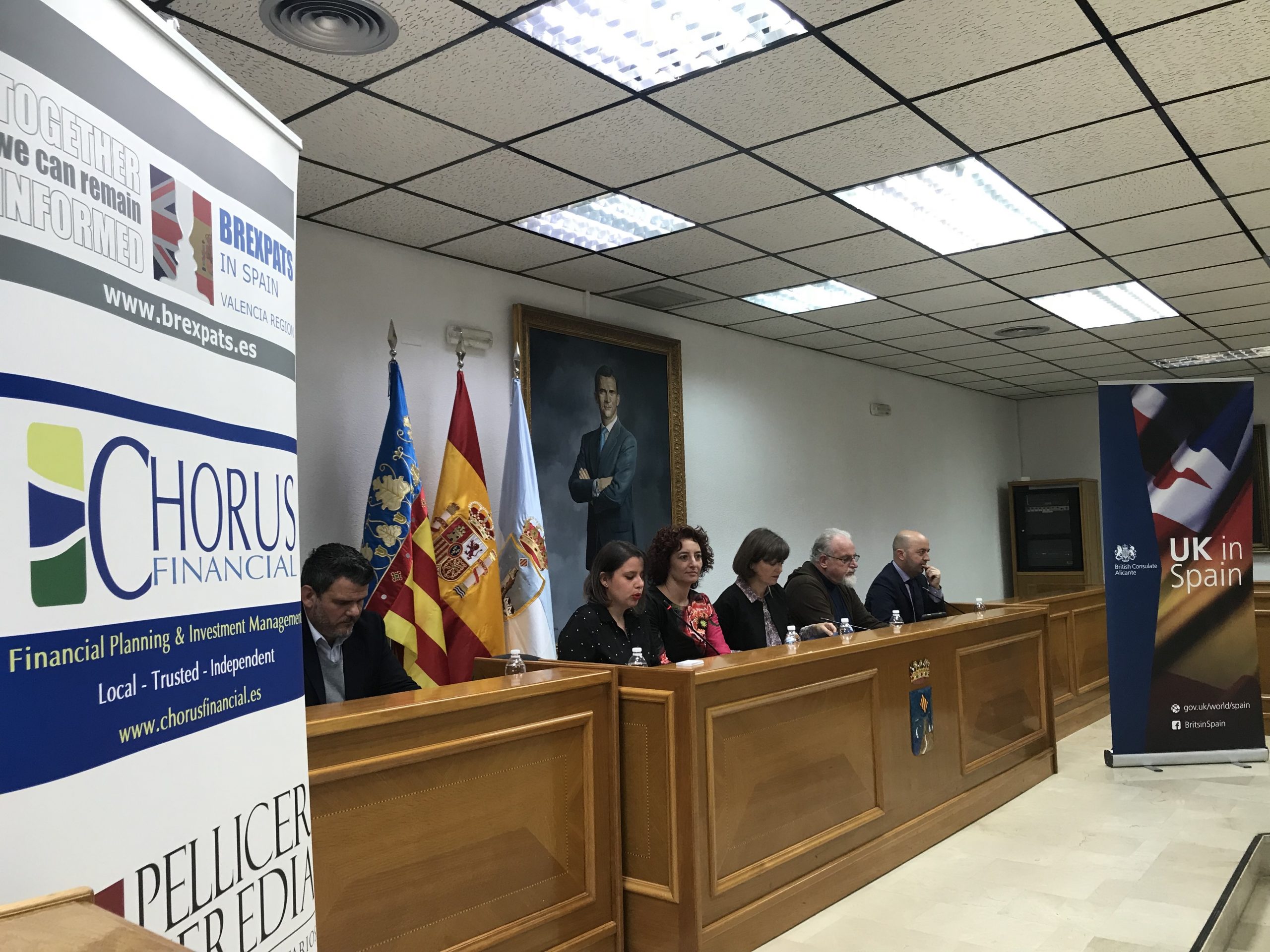
SOME 8 in every 10 new clients Chorus have seen in 2020 are in the process of obtaining Spanish residency for the first time.
Over the next 2 months Chorus will walk many Brits through the essential steps required to prepare their finances for life in Spain. But what exactly is Spanish residency, and why is everyone suddenly in such a rush?
I was lucky enough to sit on the panel for the British Consulate’s ‘Brexit’ tour, meeting many thousands of Brits over dozens of meetings and answering questions specific to my industry on investments, pensions etc in a post Brexit world. This gave me direct access to the British Consulate and the opportunity to fully understand the Withdrawal Agreement and how to help our clients prepare. This is the information I want to share with you all today.
Even prior to all this talk of Brexit, you couldn’t simply arrive in Spain and stay indefinitely without taking certain steps. Once you’ve spent 90 consecutive days in Spain you must register both on the central register of foreign nationals (‘registro central de extranjeros’) and with your local town hall (‘padrón municipal’). The padrón itself has other requirements which I won’t go into today.
For those carrying out this process from 6th July 2020, you will be given the Tarjeta de Identidad de Extranjero (TIE). This biometric card explicitly states that it has been issued to the holder under the terms of the Brexit ´Withdrawal Agreement´. All UK nationals legally resident in Spain before 31 December 2020 have the right to request this card.
For those who registered prior to 6th July 2020, you will have the traditional Green Card or ´Residencia´ certificate. This document still guarantees your rights under the Withdrawal Agreement, but you can also request a TIE if you wish.
The Withdrawal Agreement means that as long as you establish residency in an EU state prior to December 31st 2020, then you and your family members, even those from outside the EU, have the right to continue to reside in your host state, with all your current rights protected.
Specifically to Spain, Royal Decree-Law 5/2019 establishes that Spain will also continue to provide nationals of the United Kingdom with health care on the same terms and under the same conditions established prior to the UK’s withdrawal. For British state pensioners, this means you continue to have guaranteed access to healthcare in Spain.
All of the above guarantees are based on you being legally resident in Spain before the end of 2020, and importantly, being continuously resident thereafter to retain such rights. Continuous residence means that you are in Spain for at least 183 days a year and with that you must also become a fiscal resident, which exposes your worldwide assets and income to Spanish taxation.
A non-resident is someone who has assets in Spain, for example a property, but spends less than 183 days here each year. Non-residents have no rights under the Withdrawal Agreement, so you should be aware, that simply having a TIE or Green Card is not a standalone guarantee, you must also continue to fulfil the requirements of residency. For those who do become resident, for the first 5 years of residency you will be considered a temporary resident, ´residencia temporal´.
Once you have been continuously resident in Spain for 5 years, you earn the right to permanent residency, or ´residencia permanente´. This allows you to live and work in Spain with the same rights as any other Spanish national, is valid for a further 5 years, and can be renewed thereafter.
When applying for permanent residency you will need to provide evidence that you have been continuously resident in Spain, such as tax returns, payslips, utility bills etc. Unlike ´residencia temporal´, where you have to remain in Spain full-time to retain your rights, once you have permanent residency you can be outside Spain for up to 12 months continuously, but no more than 30 months in total over the 5 year period, without losing your rights.
The situation we currently face is that tens of thousands of Brits are rushing to protect their rights in Spain by becoming resident. As Spanish residency also means exposing yourself to the Spanish tax system, it is essential you plan for that too.
The most popular investment products; ISAs, Premium Bonds, Unit Trusts, Investment Bonds, Platforms etc have been specifically designed to take advantage of the UK tax system. However, when held by Spanish residents they can become punitive from a taxation perspective.
One of the biggest mistakes we see Brits make when they move to Spain is their failure to address such issues before they become obliged to pay Spanish taxes on their worldwide assets, which for many of you will be January 1, 2021.
Just as the British Consulate have advised not leaving residency until the last minute, Chorus are advising that you address this today. Chorus are currently working with Brits across Spain, from the Canaries to Girona, Bilbao to Palma de Mallorca, to help take the simple steps required for a smooth transition to residency in Spain.
After just one short consultation you will understand the essential steps you need to take to prepare your finances for the Spanish tax system, whether that be your pensions, investments, or other assets.
The best place to start is by sending an email to info@chorusfinancial.es with a brief outline of your circumstances, including a contact number. A Chorus adviser will get back to you to discuss in further detail. We are offering this initial service for free and without obligation.
If you require further information or would like to speak to an adviser directly please visit www.chorusfinancial.es or call +34 965 641 163.
Click here to read more Business & Finance News from The Olive Press.









